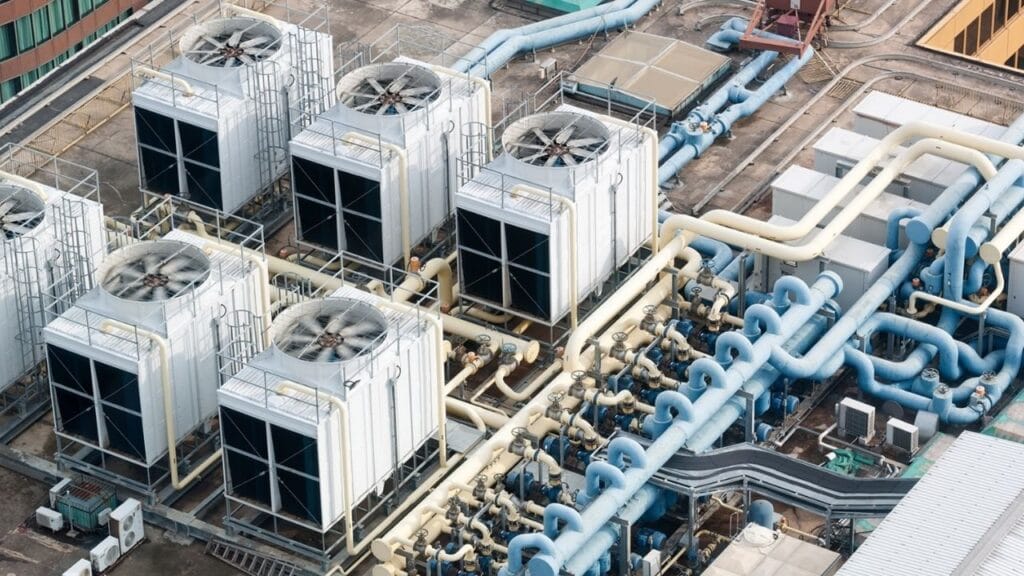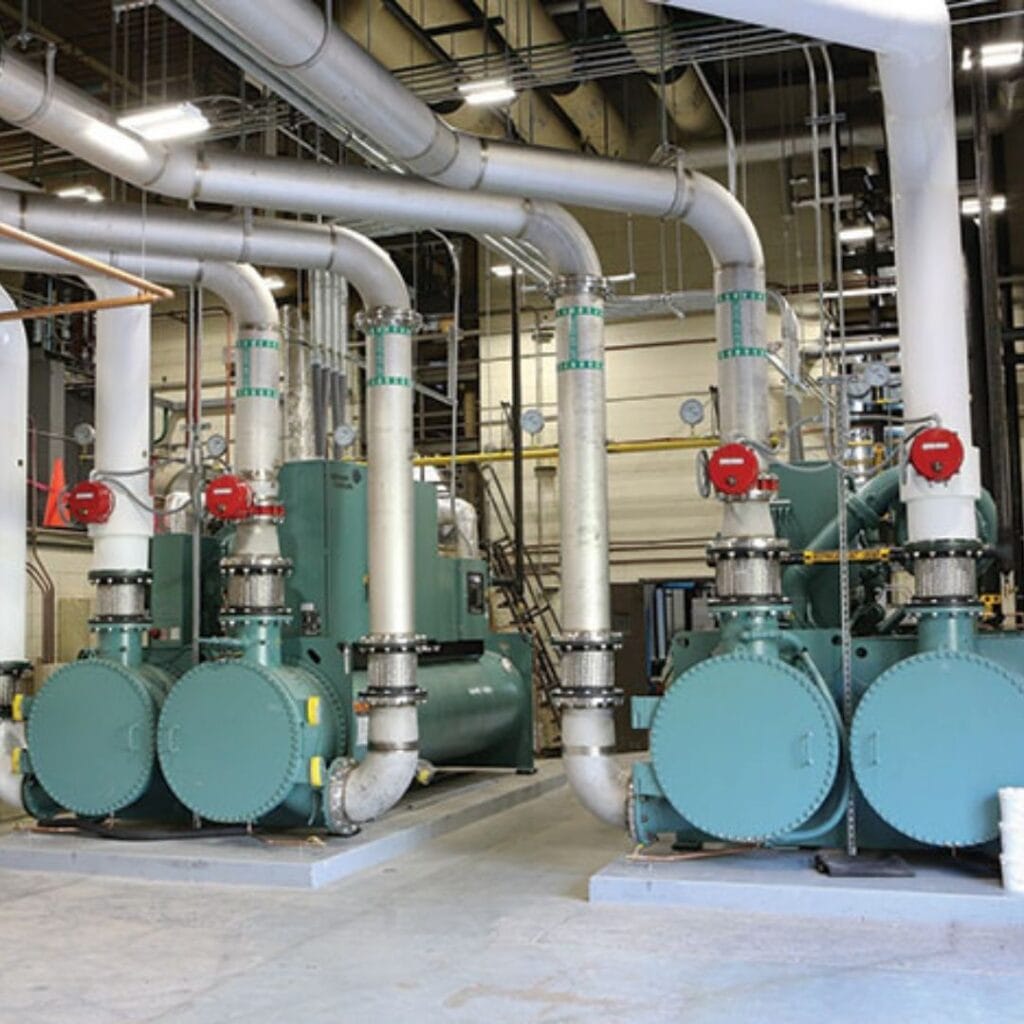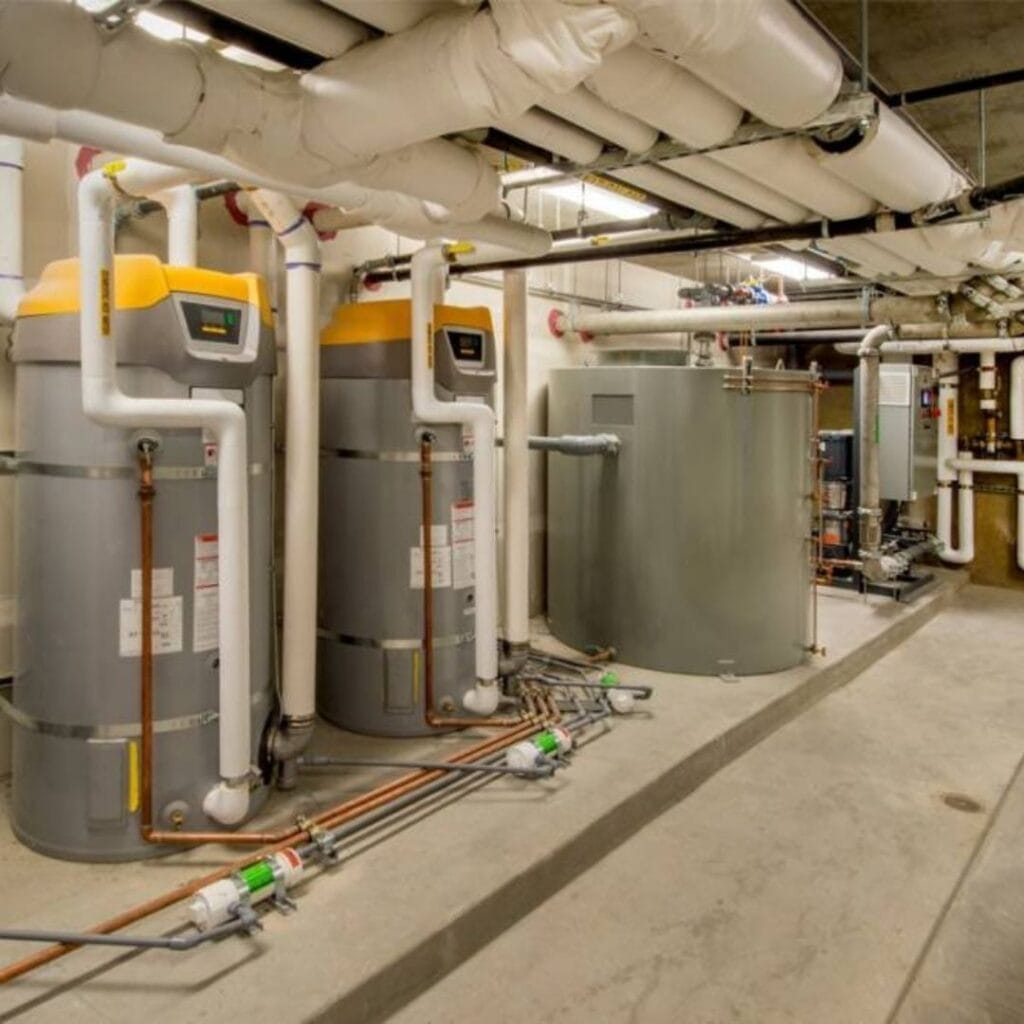How To Calculate An Estimate For HVAC Services?
Heating, ventilation, and air conditioning, also known as HVAC services, are a standard feature of any commercial or residential property.
Maintaining and repairing HVAC systems is a routine part of owning a property and requires the help of professionals like yourself.
This article explains the many factors that influence the price of HVAC services for contractors. In order to be hitting your profit margin, you need to be accounting for these things on your estimate.

Charge Methods And Prices
HVAC jobs are charged by the hour, but additional installation fees and equipment costs can be added in.
HVAC services cost anywhere from $141-$451 on average, with a minimum service fee of $75-$100. This is based on an hourly rate of $100-$150 per hour.
Most HVAC contractors will charge a minimum, or base rate, for any job they do. This cost is often rolled into the first hour of service.
The numbers above are based off of basic repairs. A general diagnostic assessment of an HVAC system runs around $90, and a standard tune-up costs an average of $100.
As you can see, there is a great deal of price variation in these figures. A good way to figure out what the market is like in your area is to simply call the competition and ask for a quote. This will help you assess what you should be charging, or if you should be undercutting or lowering your prices to be cheaper than your competition until you get an established client base. Using an HVAC estimator can also provide a detailed breakdown of potential costs and help streamline your pricing strategy.
General maintenance and repairs only account for part of the HVAC market. If you are installing a brand-new HVAC system in a property, the cost could be astronomically different.
The cost of installing a new gas furnace could be anywhere from $1,800-$4,000.
You could also be installing electric or oil furnaces. An electric furnace starts around $1,700 and although uncommon, oil furnaces can go all the way up to $6,000 for installation. These are pricey jobs, so make sure you’re discussing the proper options with your client in your HVAC walkthrough so they make the right decision.
Air conditioners are another huge part of HVAC installation with a tremendous range in price. Installation for a new AC averages anywhere from $1,800 all the way to $10,000.
Clearly HVAC services are a major investment not only for your client, but for your own business, as well. Some of the projects you take on could be huge. Do plenty of research on your client before writing your contract.

Price Factors
With prices that vary so greatly, you can be sure there are numerous factors affecting the numbers. Let’s talk about some of the things that will influence how you price your jobs.
One of the main HVAC price factors is equipment capacity and features. A high-capacity system typically costs more than a small system, but it has benefits like increased overall efficiency and onboard diagnostics.
Ductwork is another price influencer. In order to have a new HVAC system installed, the property must have ductwork in place. If this does not exist, this system must be designed and installed first before anything else can happen.
Zones go along with ductwork. HVAC Zoning is defined as, “a system that uses dampers in the ductwork to regulate and redirect air to specific areas of the home. This allows for the creation of customized temperature zones throughout the home for increased comfort and efficiency.”
The more zones you have in your design, the more expensive the installation is going to be.
The last price factor is the addition of special systems, like air quality controllers or humidifiers.
These modifications will make any job more complex and expensive.
Supplies And Equipment
HVAC installation and maintenance requires a significant amount of supplies, some of which can be billed to your client.
Things that can be billed include any HVAC unit you’re installing, like a furnace or AC, ductwork, paper or adhesive products, and other disposable cleaning supplies you’d have on any construction-type job.
For these kinds of supplies, factor the cost of each one into your estimate. Estimate Florida Consulting, along with other estimating tools, makes this easy by providing options for different supplies.
Aside from billable supplies, what are other tools that every HVAC technician should have before starting a job?
The most important HVAC system tools you need in the field are:
- Reciprocating Saw Blades
- Vacuum Pump
- Refrigerant Scale
- Cordless Drill
- Screwdrivers
- Pipe Wrenches and Pliers
- Tin Snips and Shears
- Multi-Meter and Voltage Tester
The above article explains the functionality of each of these tools. Make sure you have invested in the proper tools and equipment before bidding on jobs.
Labor
The last consideration we’re going to discuss on your estimate is how much labor you need.
To accurately determine your labor, you need to know your _production rate, _or the average time it takes to do different jobs.
You can do this by timing yourself on several different types of jobs several times in a row and finding the average time spent on each one.
To check and see how your production rate stacks up against the competition, look online for production rate charts or find data about the average time HVAC technicians are on the job site in your area. This part takes a bit of research but will ultimately help you assess your time better and hit bigger profit margins.

Conclusion
HVAC jobs require a lot of installation and special equipment. These things can get pricey, so knowing what you’re going to charge in advance is key. Using walkthrough, bidding, and proposal estimating services can help you capture and account for every detail in your submission.
Most HVAC technicians charge by the hour, anywhere from $100-$150 on average. This does not include a base service cost, which runs around $75-$100, but that money is often folded into the first hour of work.
Installing furnaces and air conditioners are going to make up a good part of your job. These services range in price tremendously, anywhere from $1,800-$10,000.
Things that affect the price are just as varied. Gas, electric, and oil furnaces all cost different amounts and AC systems might need brand new ductwork or special zoning.
Other things that influence cost are the capacity of the HVAC system and whether it has special features like onboard diagnostics, air quality controllers, or humidifiers.
You’ll need many different supplies as an HVAC technician, from cordless drills to voltage testers.
Some of your supplies, like disposable cleaning supplies you’d take on any job, can be billed to your client, especially if you’re going through a lot of one item.
Finally, spend some time assessing your labor and production rate so you know how many employees need to be working on specific jobs. The better you are at this, the higher your profit margins will be in the long run.
HVAC installation and maintenance is tricky and complex, but with time and practice, you’ll be writing better estimates and landing more bids than ever before.
Google Reviews





